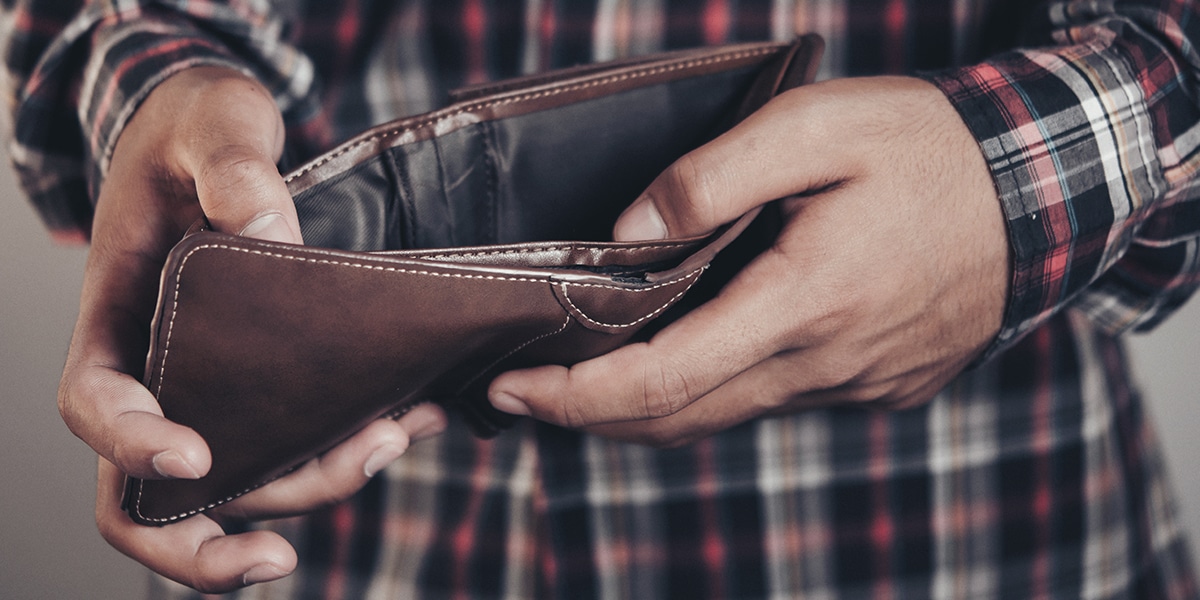I was a kid the last serious inflationary period of the 1970s and ’80s, so I didn’t really think much about it. These days, however, I’m a responsible breadwinning adult with bills, a mortgage, and other grown-up financial concerns. So I’m very aware of how prices are rising relative to our household budget.
O me of little faith: I’ll admit that I’ve been a bit nervous, wondering how we’ll be able to afford these rising costs. And that’s from a position of relative privilege, with a decent job and some money in the bank. I feel a whole new level of concern for people who already balance on a knife’s edge of solvency. It’s a scary, uncertain time for a lot of us.
Without being a Pollyanna, I do think that watching our buying power erode before our eyes doesn’t have to be an occasion only for stress and anxiety. As with most hard things, it can also be a gift and an invitation. Cheap prices and effortless ordering and delivery—not to mention an aggressive advertising industry—have made it too easy to fi ll our lives with far more things than we really need.
We end up feeling possessed by our possessions and burdened by all the things that were supposed to make our life better. Now that buying things has become more of a challenge, however, it’s a perfect opportunity to consider how we might have a healthier, simpler relationship with our stuff .
A Wider View
Before unpacking this idea, however, I want to make an important point: Stuff isn’t bad! Th e genius of the Catholic sacramental imagination goes all the way back to Genesis, where God looked upon creation and proclaimed all of it “very good.” Everything, our tradition teaches, can reveal the divine, whether the elements of nature or the things made by the ingenuity of human artifice. Jesus himself was a carpenter, which meant that he dealt every day in the practical world of things, making and repairing them with skill and care. Things are good, and we can’t survive without them.
The ideal, then, isn’t to escape the world of things, as some Christian heresies have advised. It’s to cherish their goodness by having a right relationship with them. It’s to honor and respect the materials of this world as vessels of the divine presence, as St. Julian of Norwich did when she gazed at the simple hazelnut lying in her palm.
What does that belief look like in day-to-day life? As with all practices on the path of simplicity, creating a healthy relationship with our stuff starts with intention. We Christians don’t get a free pass on being mindless consumers: God gave us free will so that we could be thoughtful and intentional about the choices we make in acquiring things.
Of anything you own or buy, you can start with a simple but practical question: Can I truly afford this? Am I able and willing to pay not only the purchase price, but also all the associated costs of owning, storing, maintaining, repairing, transporting, and eventually disposing of it?
Questions to Consider
There are also ethical considerations: Should I buy this? Does this purchase serve a healthy need or desire, or am I just trying to fi ll a void that no object can fi ll, like loneliness or insecurity or ego-drive? Do I feel good about how and by whom something was made? Does owning it reflect my desire to treat the earth with kindness, or does my purchase fuel destructiveness that I don’t wish to support?
Finally, discern whether your possessions actually give you real pleasure and satisfaction. In my family, much of what we own carries meaning and story for us, such as original artwork made by us and other local artists we know. They’d be the things I’d grab—besides my kids and spouse, of course—if our house were on fi re. We also own a lot of power tools, equipment, and cookware because we love how useful they are in helping us meet a lot of our own needs. Though it’s hard in a throwaway culture and with a limited budget, we also try to buy things that are well-made, durable, and can be repaired, repurposed, and recycled (in that order). I wear a family heirloom watch that’s almost 50 years old and is still ticking, and many of my hand tools belonged to my grandfathers.
I can still be a sucker for new gadgets, but they, to borrow a phrase from the tidying maven Marie Kondo, don’t tend to spark much joy. It’s not only about what we have, but also how we have it. All of us can take a lesson from the rich young man who couldn’t follow Jesus because he couldn’t bring himself to let go of his many possessions.
However much or little we may have, it’s easy to be overly attached, even if we believe, as Christians, that nothing ultimately belongs to us. It’s all right to own and appreciate things, but we have to hold them loosely, like a monastic friend of mine who, when I complimented his shirt, started to unbutton it to give to me. Holding things loosely can also mean freely sharing or even jointly owning things with others, like expensive but rarely used power equipment.
I’m not happy to be living through an inflation cycle, and I worry especially for those who live too close to the margins. Aft er all, we are our brothers’ and sisters’ keepers. However, during this fraught economic moment, these challenges also off er us a beautiful chance to cultivate more freedom, intentionality, and pleasure in the virtues of good stewardship. That’s a price worth paying.








